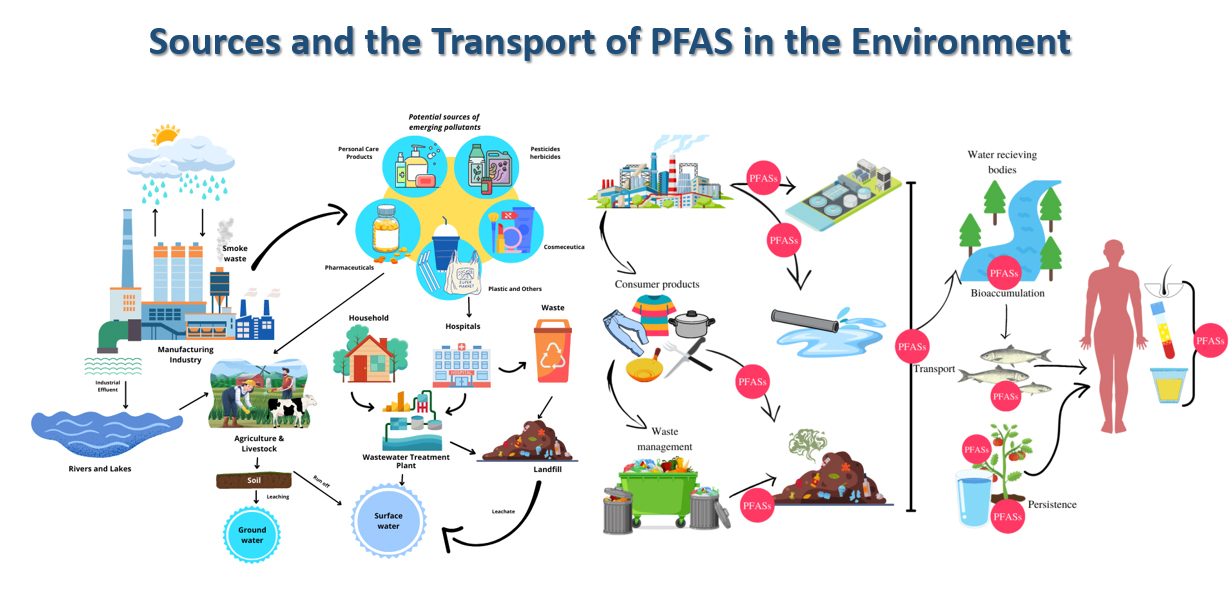Vision
The overarching goal of the water quality lab at SBASSE is to provide reliable and high-quality environmental laboratory services and consultations through state-of-the-art technologies; benefiting the industry, society, and environment.
Background and Rationale
Water is essential for life, and to emphasize the importance of water, the United Nations recognized access to safe water as a basic human right. Pakistan, once a country with an abundance of water, now faces an acute water crisis. Only 20% of Pakistan's population has access to safe drinking water, placing it ninth on the list of the top 10 countries without access to safe drinking water. Poor water quality in Pakistan causes 30% of all ailments and 40% of all deaths. The arsenic levels in Pakistan's tap water are putting the lives and/or health of 60 million people at risk. New and emerging contaminants (ECs) in water are a major cause for concern for human health worldwide. Pharmaceuticals, cosmetics, endocrine disruptors, bisphenol A, and polyfluoroalkyl substances (PFASs) are examples of emerging contaminants. Among ECs, PFASs (also known as "forever chemicals") can cause serious health effects such as dyslipidemia, pregnancy-induced hypertension, liver damage, lowered immune function in children, an increased risk of thyroid sickness, lower fertility, and cancer, even at extremely low concentrations (parts per trillion). PFASs are used in food packaging, non-stick cookware, cosmetics, waterproof and stain-proof fabrics and carpets, aqueous film-forming foams, semiconductors, lubricants, adhesives, surfactants, and metal plating processes.

Until today, the government organizations, laboratories, and scientific community in Pakistan are still focusing on conventional pollutants (e.g., heavy metals, pesticides, nitrate, and fluoride) mainly because of the limited analytical infrastructure and resources. Unfortunately, Pakistan has no national database on water quality, and information about ECs contamination in aquatic environment is extremely limited.
The textile industry is Pakistan's most well-known and significant industrial sector, and it is regarded as the economic backbone of Pakistan. The textile sector in Pakistan is working with international brands such as Nike, Levi Strauss, and Adidas. These brands are now signatories to the Road Map to Zero (RMZ) program. In addition to addressing traditional wastewater discharge criteria, the RMZ program guidelines further include the testing of hazardous chemical substances including ECs (e.g., PFAS, bisphenol A, and dyes).
New environmental regulations and industry needs have made the availability and dependability of water quality testing findings crucial for both domestic and industrial users. LUMS water quality lab help the country to determine the extent of water contamination by conventional and ECs, raise public awareness, provide services to the local industry to test and meet the discharge criteria (both traditional and RMZ) of industrial wastewater, and suggest solutions for water reuse to lower the stress on freshwater resources, which are already depleting.
For information please contact Dr. Tauqeer Abbas.